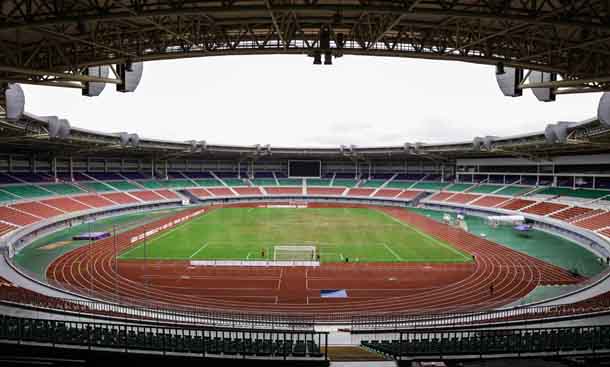RANGOON — The installation of fourth generation (4G) mobile Internet networks at venues for the upcoming Southeast Asian (SEA) Games will be completed next month, according to the national telecoms provider.
U Theinhoke, deputy general manager of Myanmar Posts and Telecommunicationssaid 4G LTE data services would be available at venues in Rangoon, Naypyidaw, Mandalay and Ngwesaung Beach during December’s SEA Games thanks to assistance from the Japan International Cooperation Agency (JICA) and Japan’s NEC Corporation.
“We started installing the 4G network in July and now 50 percent of the installation is complete,” he said, adding that the 4G infrastructure would remain in place after the games, although no licenses to operate 4G services have been issued by the government.
4G is the successor to 3G standards—currently the most advanced internet network system in use in Burma—and offers so-called ultra-broadband internet access on mobile devices.
JICA said in a statement in December that it was providing a grant of 1.71 billion yen, or about US$17 million, to the government for the Urgent Communication Networks Improvement Plan, an attempt to ready Burma’s communications infrastructure for increased traffic.
The SEA Games are set to be held in Burma in December for the first time in 44 years, and next year the country will also host a number of events in its role as chair of the Association of Southeast Asian Nations, or Asean.
JICA in the statement said the funding would address serious problems in network capacity and communication quality in Burma.
“Out of the total population of Myanmar [about 60 million], only about 10 million people are using mobile communication and fewer than 3 million people are using the Internets,” said Ko Zaw Min Oo, a director at local company Barons Tele-link Co. Ltd.
“If 4G network can be available in SEA Games, it is very good for the country,” he said.
Ko Aungkham, an IT entrepreneur, said people with smart phones would be able to use the 4G network, but pointed out getting such phones connected was difficult in Burma’s restrictive telecoms market.
“For the 4G network, the service providers charge too much and also the users have to use more high smart phones fitted with the LTE version [of 4G],” he said.

















